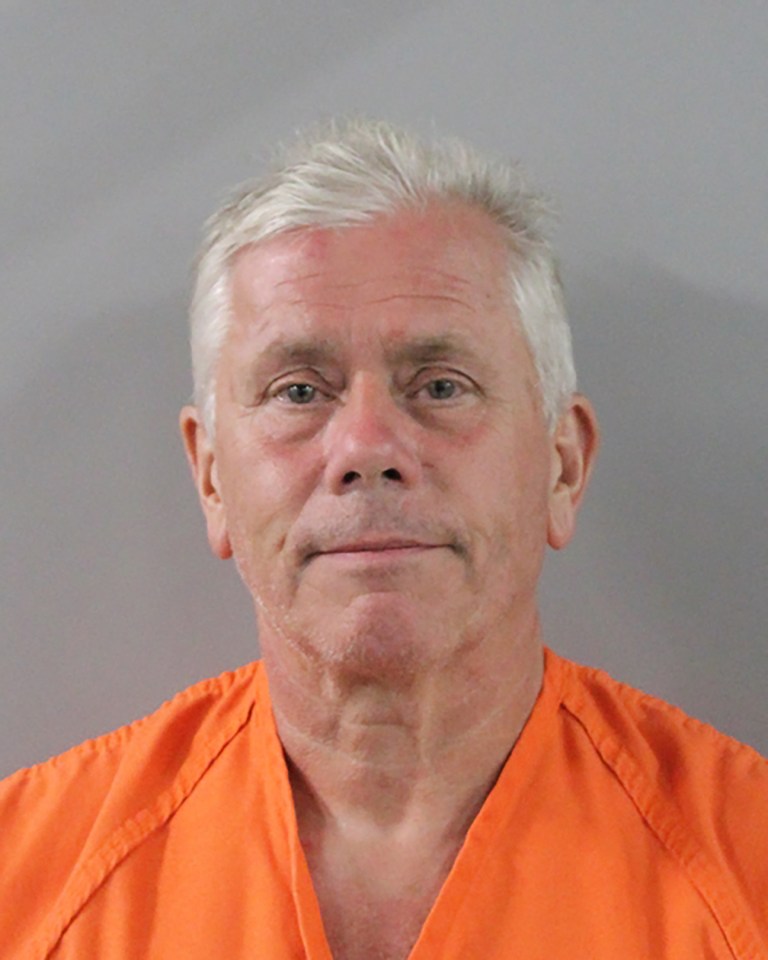Nigerian Fire Service Officers Drown in Debt Over Unpaid Salaries

In December last year, Talle Bello* received his appointment letter to join Nigeria’s Federal Fire Service. Like many others, he saw it as a turning point, a chance to finally support his family with stability and contribute meaningfully to his country.
But nearly ten months later, he has not received a single salary payment.
Talle is yet to be enrolled on the Integrated Payroll and Personnel Information System (IPPIS), the country’s central platform for paying federal workers, despite being among the first set of officers who reported in Abuja, North Central Nigeria, for training and documentation. When the IPPIS team arrived, they announced they could only handle a limited number of people each day.
More than 200 officers showed up for the first two days. Like many others, Talle waited patiently but was not captured. Then, the IPPIS team stopped showing up completely.
Weeks later, he received a call from a friend notifying him that the IPPIS staff would be returning. He dropped everything and rushed to the command in Kubwa. But when he arrived, it was announced that only those on the “special list” of the service’s former Comptroller General, Abdulganiyu Jaji, would be enrolled.
Talle and other officers were not on this list. Since then, there has been no update. The existence of such lists in government workplaces reveals a grave loophole, one that blurs the line between formal professionalism and informal relationships, creating space for favouritism, especially against recruits like Talle who lack “connections”.
Despite not being captured by IPPIS, he was posted to his duty station. He reports to work wearing the uniform, but he is not on the payroll.
“We’ve been working without pay since December,” he told HumAngle. The exact number of affected officers remains unclear, as no official figures have been released. However, Talle said he knows of 15 other officers who have yet to receive their salaries.
IPPIS was launched in 2007 as part of efforts to strengthen Nigeria’s public finance system and plug loopholes left by the Government Integrated Financial Management Information System (GIFMIS). It ensures salaries are processed directly into the bank accounts of enrolled employees.
Despite these intentions, labour unions such as the Academic Staff Union of Universities (ASUU) have consistently opposed the platform, arguing that it fails to accommodate the unique operational and administrative structures of institutions like Nigerian universities. An academic study underscores this rejection as a critical issue, pointing to the software’s inability to reflect the sector’s specific needs and complexities.
For Talle, the consequences are deeply personal.
He is the eldest male in his family and the breadwinner. His two younger sisters, aged 21 and 23, are both in university — one studying nursing and the other law. Before his appointment, he supported them through the menial jobs, particularly bricklaying. It was hard but manageable. Now, with no income, it’s nearly impossible.
He told HumAngle that bricklaying usually paid him about ₦7,000 per day, from which he has to save, feed, and transport. But the jobs are now rare.
“I often borrow money from my friends to send to my sisters,” he told HumAngle. “Sometimes, I go weeks without any work at my disposal.”
From his old pictures on his battered Itel smartphone, Talle looks chubbier. But lately, the weight has melted off, not from gym routines or diet plans, but from the quiet erosion of stress and financial strain.
“I feel like giving up on everything sometimes because life has been unfair to me in the first place. I had to take on responsibilities at a very young age to care for my siblings. It is mentally and physically overwhelming,” he added.
Families bear the brunt
The toll is not only personal. The strain has fallen squarely on his family, who are now struggling to stay afloat. Zainab, Talle’s* sister, is in her second year at a federal university in northern Nigeria.
Her academic journey has become a daily struggle. With her elder brother unpaid, she has had to navigate university life with little to no financial support.
“Sometimes I feel like I’m falling behind because everyone else is buying the latest study materials, but I just make do with whatever I can find,” she told HumAngle.
Accommodation and feeding are also major concerns. She shares a cramped room off-campus with two other students, and meals are irregular when she can’t afford to buy food. “There are days I go to class without eating,” Zainab said.
On some days, she skips lectures just to avoid the embarrassment of not having transport fare, which costs ₦600 daily.
“I used to get money from my brother every week,” she said. “Now, I wait for his call, hoping he has found someone to lend him money.”
Social pressures add another layer of difficulty. Zainab is aware of the risks young women could face when they lack financial stability. “There are people who would offer to help, but you know some will always come with conditions,” she said. “I try to stay focused, but it’s hard when you feel like you are constantly at the mercy of others.”
Her brother’s inability to support her has left her vulnerable, and she worries about how long she can keep resisting. “I know my brother is trying,” she said. “He is doing everything he can. But I just wish the system would recognise that we’re not asking for favours, we’re asking for what’s due.”
For Talle, the burden weighs heavily. He often has to choose which sister gets support and which one waits. “They are both girls,” he said. “I worry about what could happen if they don’t have enough. When I got this job, I thought it would end my struggles, but things have only gotten worse.”
In Nigeria, poverty is a trap that deepens the discrimination and danger faced by women and girls. Struggling to survive, they are exposed to heightened risks of violence, abuse, and denied access to the very social safety nets that could lift them out.
A pattern of delay
Talle’s experience, however, fits into a longer history of financial neglect within the Federal Fire Service. In October 2020, officers raised alarms over unpaid salaries and allowances. Many reported working for over two months without pay, despite being required to report daily and respond to emergencies.
The leadership attributed the delay to insufficient funds in its personnel cost head, stating that other ministries were also affected. However, staff disputed this, pointing out that sister agencies under the same Ministry of Interior, such as the Nigerian Correctional Service and Immigration Service, had received their payments.
More recently, the service announced it had offset salary arrears for 2,000 personnel, describing it as a fulfilment of a promise. Yet, for new officers like the ones in Kubwa, the wait continues.
Some officers who spoke to HumAngle attributed these issues to the tenure of Jaji, the immediate past head of the service. When he retired, some officers of the service publicly jeered him following news of his retirement and replacement.
In a viral video, uniformed personnel were seen chanting “He don go,” “Barawo,” and “Oloshi”—Pidgin English, Hausa, and Yoruba slurs meaning “He’s gone”, “Thief”, and “Useless person”. The spectacle underscores deep-seated resentment within the ranks, possibly fuelled by controversies surrounding Jaji’s tenure, including alleged mismanagement and attempts to extend his stay beyond the statutory retirement age.
These recurring delays, especially in the cases of these affected officers, suggest a systemic issue—one that leaves officers unpaid, unsupported, and struggling to care for their families.
When contacted, Paul Abraham, the spokesperson of the service, told HumAngle that the authorities are aware of the concerns and the matter is under review. He, however, revealed that some of these officers could be in possession of fake appointment letters, thinking they have genuine cases to be looked into.
“Even though I am not sure of the cases of these persons [referring to Talle and the other officers], we could have people with fake appointment letters that cannot be captured for IPPIS, and we could have those who said they were posted, but we didn’t employ them,” Abraham said.
However, Emmanuel Onwubiko, National Coordinator of the Human Rights Writers of Nigeria, countered this claim. He argued that, unless there is a systemic issue within the service, it is impossible for someone to not be genuinely employed and yet be officially posted for duties by the same government agency.
Emmanuel, while calling for a forensic investigation into the issue, emphasised that the service issuing appointment letters ought to have a mechanism to detect which ones are authentic or not.
“You do not give people appointments, and in the middle of the job, you are coming out to say they have fake appointment letters,” he told HumAngle. “The government agency should be able to point out those who have fake letters and explain how they were unable to detect them. If they can’t, it means that there is a systemic problem that needs to be investigated forensically by the Department of State Security.”
Captured yet unpaid
Not every unpaid officer is awaiting capture on IPPIS, like Talle. Falmata David* was enlisted into the Federal Fire Service in February. She completed her documentation, got captured for IPPIS in Abuja, and submitted her file after thorough verification.
By April, salary payments had begun for her batch, but not for her. Despite being officially recognised and posted to her duty station, she has also not received a single pay cheque.
“I cross-checked everything before submitting, and I did everything right,” she told HumAngle, adding that she knows ten others like her who are also affected. She is currently in debt for transportation and feeding, though she declined to go into specific figures.
“If I don’t take food to the office, I work on an empty stomach,” she said, adding that the office is far from where she lives.
For now, Falmata’s motivation and commitment to duty are on a decline, as she now shows up inconsistently and performs her duties with less focus and urgency.
“Sometimes, I don’t even feel like reporting for duty,” she confessed. “The lack of payment has drained my morale.”
Falmata was inspired to join the service after witnessing a destructive fire incident in her community, driven by both passion and the hope of supporting her family. “It’s sad that despite being regarded as an officer, I can’t support them,” she said, her voice laced with grief. “When my colleagues receive their salaries, I feel bad. It’s not jealousy—it just demoralises me.”
When Falmata informed the salary department about the lack of pay, she was assured that the issue would be rectified. It has been months since then, and nothing has changed.
Deductions without pay
For Musa Koroka*, the signs of employment are all there—an appointment letter dated December, IPPIS capture completed in February, and even pension contribution alerts received on three separate occasions. Yet, he has not received a single salary payment.
“Not even once,” he lamented.
The contradiction is hard to ignore. His file is in order. He followed every step required to be recognised by the system. Still, his bank account remains empty.
Hakeem Ikumoguniyi, a banking expert with over two decades of experience in the country, told HumAngle that it is only possible to receive a pension deduction without salary if the individual is on suspension. Musa is not facing any disciplinary action; he continues to report punctually and has never missed a day of work.
“But if these officers are not on suspension and there are deductions without salaries, then there is an internal problem somewhere with the central payroll of the service,” Hakeem noted.
When asked how long the review would take for the officers to start receiving their salaries and arrears, since the issue has lingered for almost a year now, the spokesperson of the Federal Fire Service said, “The issue is not within the control of the service to determine. The Office of the Accountant General [of the Federation] is involved, and the IPPIS office is equally involved, but we are working tirelessly to resolve the issues.”
To survive, he takes on menial jobs like motorcycle taxi, popularly called ‘okada’, after his 48-hour shift, where he earns around ₦8000 to ₦10,000 daily.
“After my duty, I proceed to hustle to feed myself and help my family,” Musa said.
He has accrued debts as well, though he declined to reveal the amounts. The passion that brought him into the service is still there, but the lack of pay has made it less exciting.
“My morale is very low. If I tell you that I am happy, I am lying to you,” he added.
*Names marked with an asterisk have been changed to protect the identities of the officers who requested anonymity.




